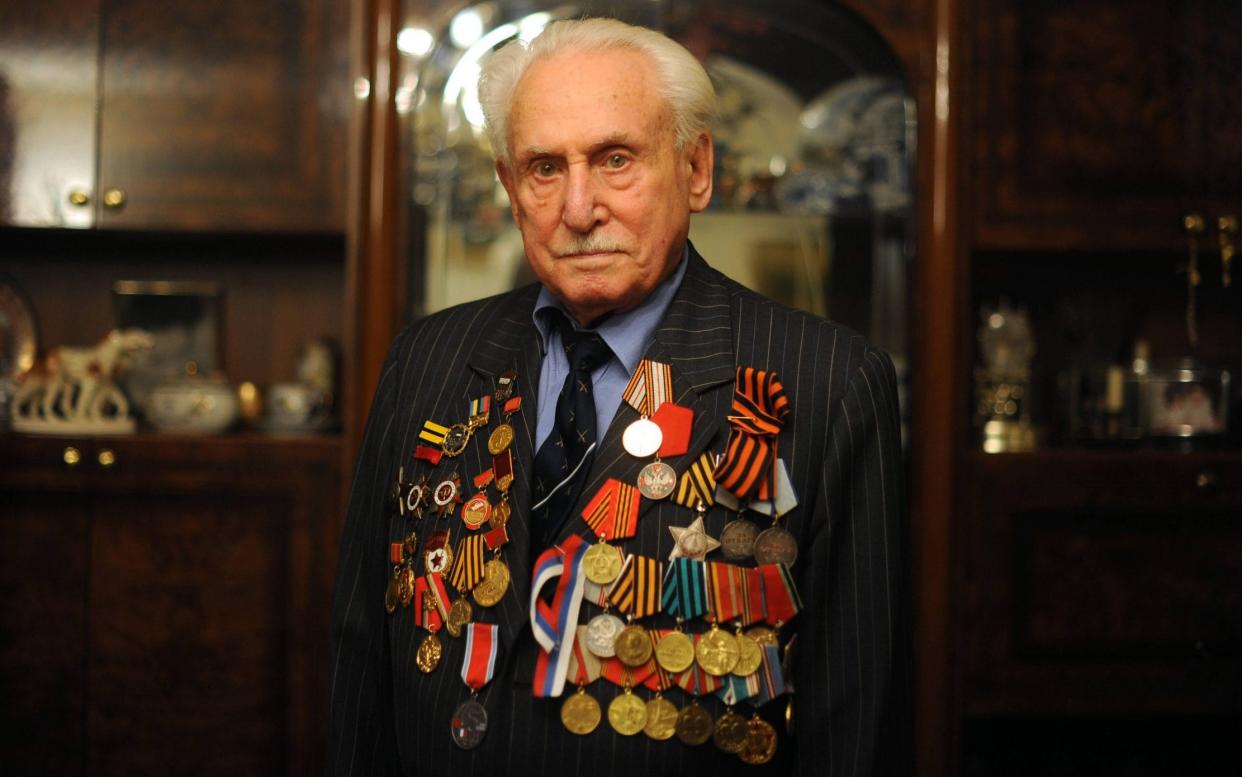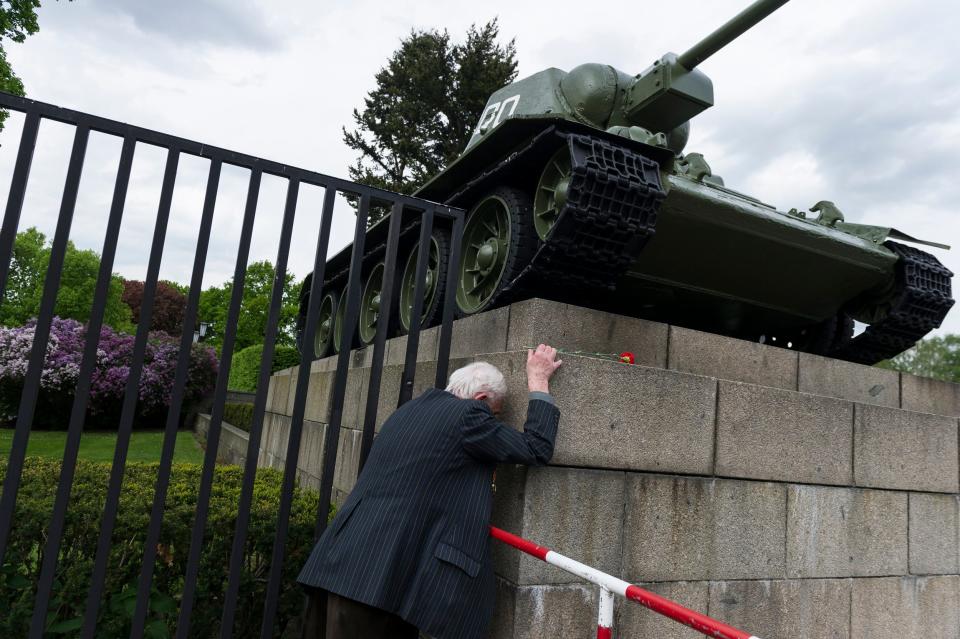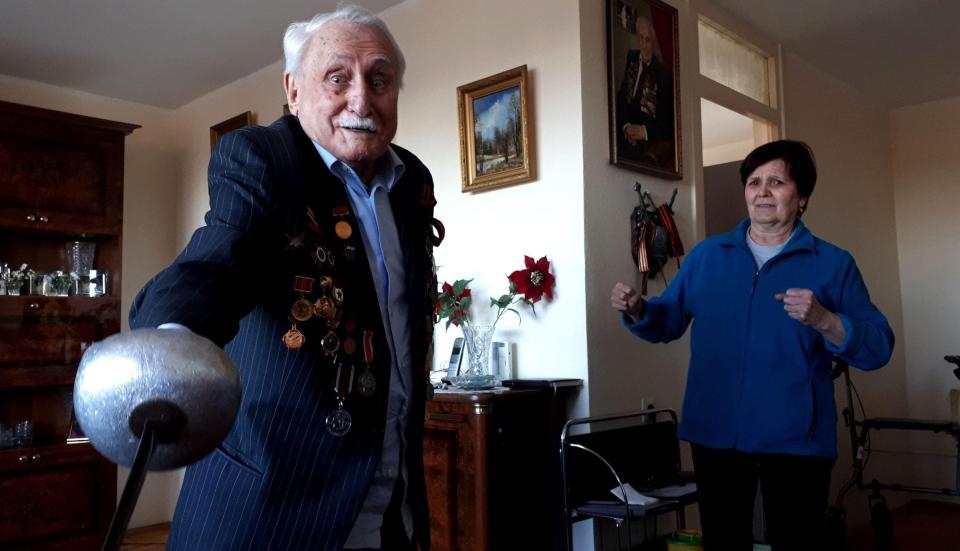David Dushman, Soviet tank driver who helped to liberate Auschwitz-Birkenau – obituary

David Dushman, a Jewish Red Army veteran, who has died aged 98, was thought to be the last surviving soldier who took part in the liberation of Auschwitz-Birkenau, a complex of concentration and extermination camps in Nazi-occupied Poland, where more than a million people, most of them Jews, were murdered between 1940 and 1945.
Dushman was a 21-year-old tank driver for the Soviet Army when the division to which he belonged, just after liberating Warsaw, proceeded to Auschwitz-Birkenau, where there were 7,500 prisoners remaining.
In the early afternoon of January 27 1945, Dushman used his T-34 tank to flatten the camp’s electric fence and help to free the prisoners. He later recalled that he and his comrades did not immediately realise the full magnitude of what had happened there. “We hardly knew anything about Auschwitz ….” he said. “We were soldiers in tanks.”
But the grim reality became apparent when Dushman and his comrades saw the prisoners who started to emerge – and, as he put it, there were “skeletons everywhere”. The prisoners, he recalled, “were standing there … all of them in uniforms, only eyes, only eyes, very narrow – that was very terrible, very terrible … they staggered out of the barracks, sat and lay among the dead … We threw them all our canned food.”
David Dushman was born in the free city of Gdansk on April 1 1923, though for political reasons his mother registered Minsk as his place of birth. His father Alexander was a doctor in the Red Army, while his mother, Bonislava, was a paediatrician.

The family moved to Minsk, where young David spent much of his childhood – although rather than schoolwork, he preferred to practise fencing, in which he excelled. They then moved to Moscow, where his father had been hired to head the medical centre at the State Institute for Sports.
In 1938 Dushman’s father was sent to a gulag after falling victim to one of Josef Stalin’s purges; he died there 10 years later.
Dushman took part in some of the bloodiest military encounters of the Second World War, including the battles of Stalingrad and Kursk. He was seriously wounded three times but survived the war along with just 68 comrades in his 12,000-strong tank division.
Dushman received more than 40 medals and decorations, including the Order of the Patriotic War.
After the war, in spite of his injuries, he worked hard to rebuild himself, although, he recalled, “at first, I couldn’t even walk because I was out of breath …”. He went on to become, in 1951, the Soviet Union’s top-ranked fencer.

The following year he began coaching the Soviet women’s team, which he went on to do for more than three decades. At the 1960 Olympics in Rome his team won gold in the foil team competition for the first time.
In 1972, Palestinian terrorists attacked the Munich Olympic village in Germany, taking 11 Israeli athletes prisoner; the Israelis were all killed. Dushman, who was in Munich with his team, recalled: “We heard gunshots and the hum of helicopters overhead. At that time, we lived right across from the Israeli team. We and all the other athletes were horrified.”
By 1988, the year Dushman ended his national coaching career, his athletes had won the world championship 14 times as well as four Olympic titles. He trained some of the nation’s most successful fencers, including Valentina Sidorova, who won a gold medal in the women’s team foil event at the 1976 Olympics in Montreal and a silver four years later in Moscow.
After the fall of the Berlin Wall, Dushman moved to Austria for several years and then in 1996 to Munich, where he spent the rest of his life. In 2003, he became a trainer at the Olympic Fencing Club in the city. His maxim was: “Fencing is not only a sport for the body, but also for the mind. It is about psychology and about learning to read people, to be faster than your counterpart, to know what your opponent is doing before he does it himself.”
He had no hard feelings towards Germany or its people. “We didn’t fight against the Germans,” he said, “but against fascism.”
Along with frequent visits to his fencing club, which he kept up until he was 94, Dushman also visited German schools to tell students about the war and the horrors of the Holocaust. From time to time he would also dust off his military medals to take part in veterans’ gatherings.
David Dushman’s wife Zoja died in 2011. They had a son, who died in 2017.
David Dushman, born April 1 1923, died June 4 2021

